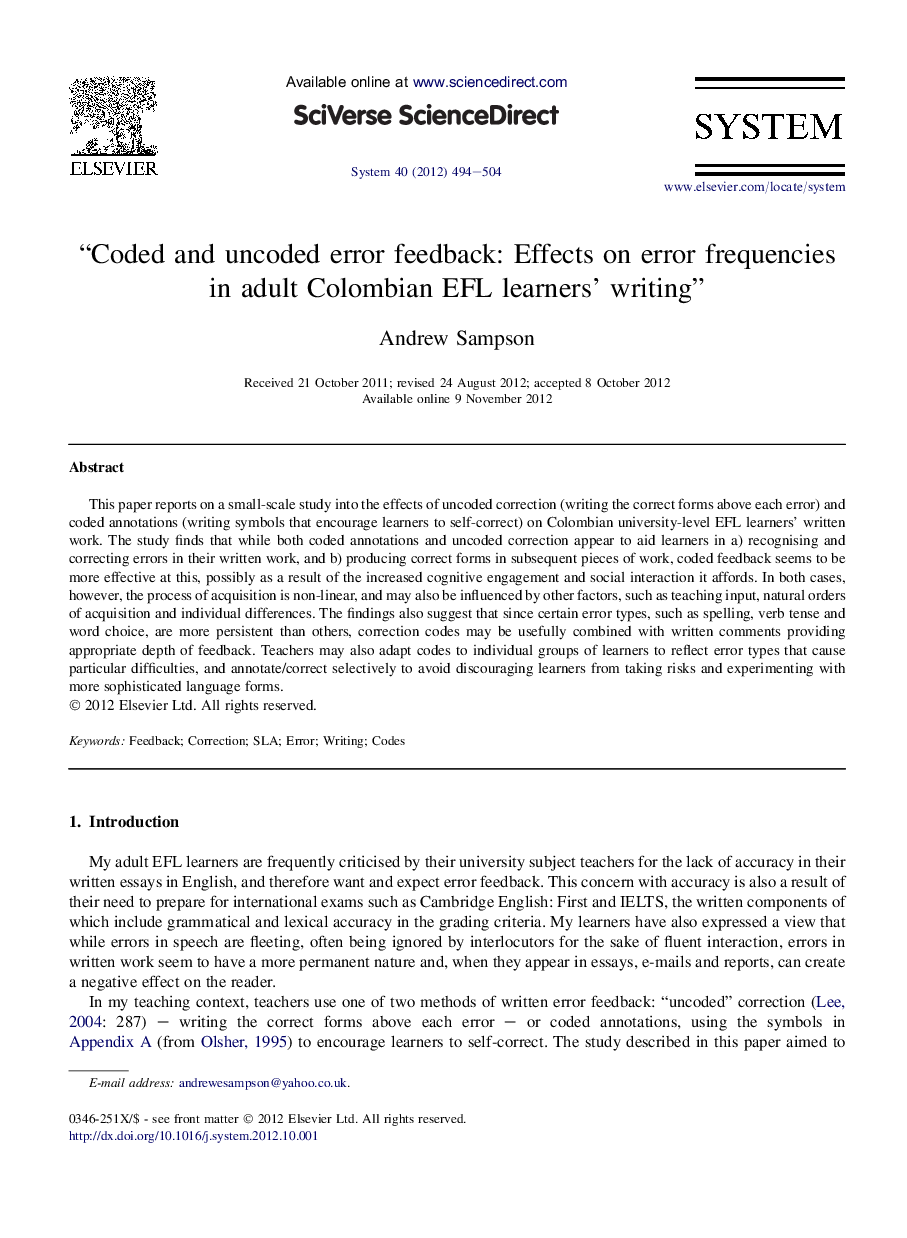| Article ID | Journal | Published Year | Pages | File Type |
|---|---|---|---|---|
| 373314 | System | 2012 | 11 Pages |
This paper reports on a small-scale study into the effects of uncoded correction (writing the correct forms above each error) and coded annotations (writing symbols that encourage learners to self-correct) on Colombian university-level EFL learners' written work. The study finds that while both coded annotations and uncoded correction appear to aid learners in a) recognising and correcting errors in their written work, and b) producing correct forms in subsequent pieces of work, coded feedback seems to be more effective at this, possibly as a result of the increased cognitive engagement and social interaction it affords. In both cases, however, the process of acquisition is non-linear, and may also be influenced by other factors, such as teaching input, natural orders of acquisition and individual differences. The findings also suggest that since certain error types, such as spelling, verb tense and word choice, are more persistent than others, correction codes may be usefully combined with written comments providing appropriate depth of feedback. Teachers may also adapt codes to individual groups of learners to reflect error types that cause particular difficulties, and annotate/correct selectively to avoid discouraging learners from taking risks and experimenting with more sophisticated language forms.
